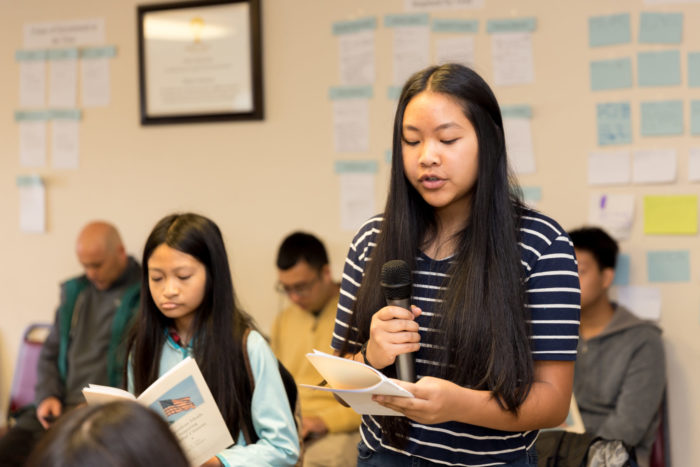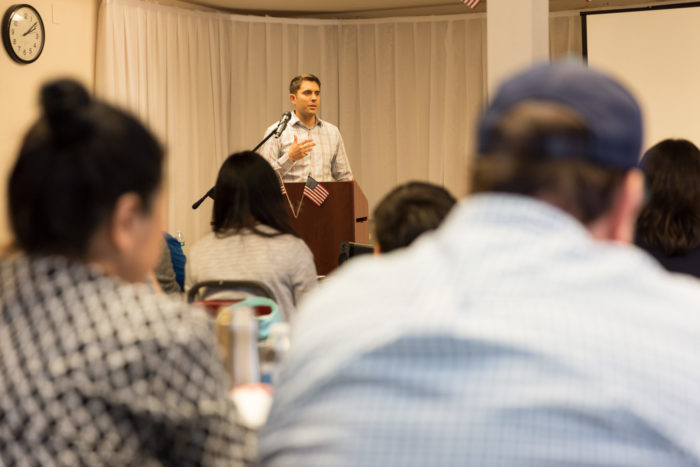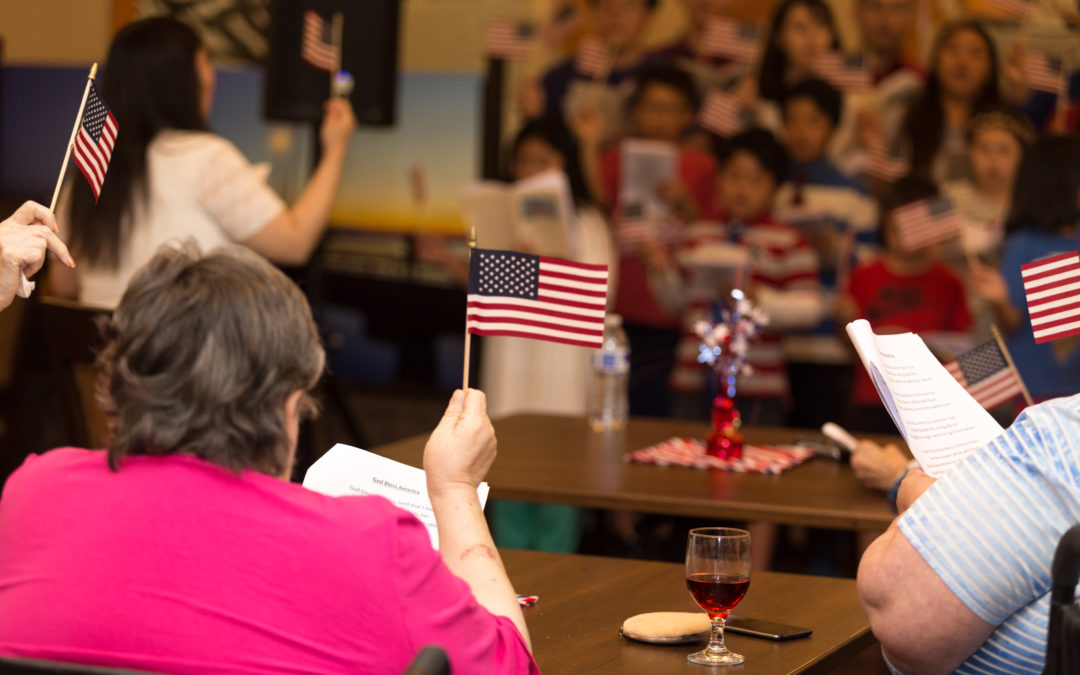In his book, “Korean Dream: A Vision for a Unified Korea,” Dr. Moon references the founding of the United States alongside the story of Genghis Khan and the creation of the Mongol Empire and the dream of the Korean people.
The principles and the dream that inspired the creation of America provide insights for the United States as well as the world today. Among clashing political, ideological, cultural differences we are all looking for a way to connect and engage and be one nation.
A recent workshop hosted by the Family Peace Association in the United States, organized by a high school student as his Eagle Scout project, explored universal principles of the American founding and how it applies to global citizenship.
The following post is based on the personal reflections of a participant and speaker:
Sometimes called the melting pot of all nations, America’s founding principles and shared values have enabled it to embrace diverse cultures and religions while maintaining some social cohesion. Its Declaration of Independence states that God the Creator grants all people inalienable rights. At the same time, it calls for each person to live their lives for a greater purpose because every person’s value and equal rights are given to us from a source greater than ourselves.
These founding values have formed the spirit of service based on human rights and the opportunity to build a culture and a society that transcends the barriers of race, religion, and other divisions to find common ground in fundamental rights, the ideal of freedom, and to serve those who could not protect those freedoms for themselves.

Workshop participants explaining what “We hold these Truths to be self-evident” from the Declaration of Independence means.
The founding fathers of America recognized just how important these fundamental freedoms were. They willingly put their very lives on the line to protect the values that would be later articulated as the right to life, liberty, and the pursuit of happiness. The original phrase was “life, liberty, and property.” However, it was rewritten to the more appropriate “pursuit of happiness,” which conveys the spiritual pursuit of all humanity.
The pursuit of happiness rests not on the aspiration of one individual but depends on relationships founded in virtues. Happiness cannot be achieved alone; it is found only in dynamic relationships. It is a collective effort between people and within the family. Some of the most charitable efforts, from alleviating poverty to responding to natural disasters, are motivated by this spiritual pursuit of happiness.
It is this same spirit of service that motivates many military personals in the United States to champion human rights for all people, not just their own nation. This spirit of selfless service is what inspires servicewomen and men to get up every day, train, and work hard to not only protect the fundamental freedom of all people but to protect the ability to create a culture of values, raising healthy families with the potential to pursue happiness. In many ways, it is the legacy of the American story – “the pursuit of happiness” for all people.

Jeremy sharing his experience on service.
Jeremy is a serviceman who shared his testimony at a recent Family Peace Association family workshop. As a husband, father, graduate student, and Captain in the United States Army, the values he strives to build up in his own family are the same values that gives him the motivation and passion to serve his country, willing to even lay down his life to protect fundamental human rights and the founding ideals that made America a melting pot of people and cultures from every other nation around the world.
“I absolutely love the USA. What made me feel this way were the values that America’s founding represented.”
When he first became a cadet, Jeremy vowed that he would “not lie, cheat, steal, or tolerate those who do.” He described that standard and the values that come with it as more important than life itself. A values-based culture is what makes values a reality in everyday life.
There are ideals and values, like the sense of service to humanity, that is bigger than any one nation or organization. They are universal. Global citizenship is something all of us can practice with every generation as we continue the legacy of service through our families and communities around the world.
The original post appears on Family Peace Association. Dr. Hyun Jin Preston Moon is the founder of the Family Peace Association.

